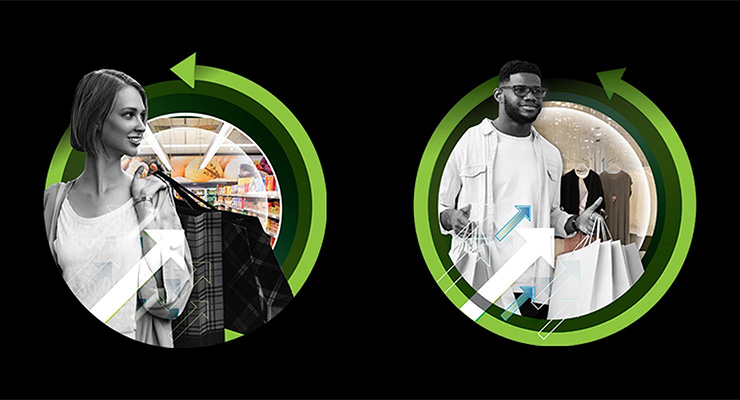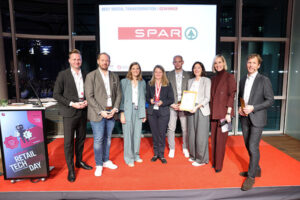Post-pandemic tech developments are making a steady progress. Cloud-based tech development was fast-tracked, and in the move to become a more sustainable industry, retail has taken advantage of new technologies that are enabling better data collection, tracking, and tracing, supply chain visibility, and more. Not only that, but the retail industry is also using tech to power entirely new circular business models, like apparel rental and resale.
There is a clear increase in customer demand, which stems from Millennial and Gen Z consumers, who are continuing to increase in spending power and influence the consumer landscape. Despite an inflationary economy, 47% of consumers are still choosing to spend more for sustainable goods and services, even though they typically associate sustainable alternatives with being more expensive. They have also begun to demand transparency around companies’ carbon footprints.
According to a recent Think with Google report, 72% of UK consumers say that having a brand’s values reflect their own beliefs is a deciding factor in what they buy, so making a sale can come down to whether a consumer feels they can trust what a company claims to be true. Not only that, but sustainability has also become a driving concern within the workforce, too, as many companies seek to attract and retain employees from a talent pool who care about the environmental commitments of their employers.
When it comes to sustainability, today’s consumers want to know that a company has priorities beyond profit. Prioritizing sustainable outcomes that are good for the planet and good for business will help organizations foster more meaningful relationships with their customers, connect more authentically, and create trust through greater transparency. This is also aided by the changing regulatory environment that has led many organizations to increase climate action over the last year.
The good news is that leaders are optimistic about the future – of our wardrobes, of the retail industry, and of its commitment to sustainability. Based on the 2023 CXO Sustainability Report, 84% of leaders agree that both their organizations and the global economy can continue to grow while also making real progress in achieving climate change goals. By investing in and adopting new tech enabled tools and solutions, companies can drive sustainability faster and with much more ease, leading to ROI all around: happier customers, growth in revenue, and a greener planet for all to enjoy.
“Consumers today expect the retailers and brands they buy from to really care about sustainability and their impact on the environment. It is now becoming a non-negotiable demand that a retailer is working towards Net Zero emissions and refocusing their supply chains to offer more sustainable products”, adds Ian McGarrigle, chairman of the World Retail Congress.






